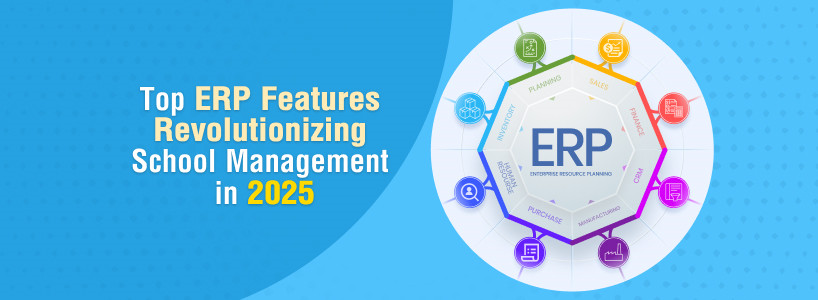In 2025, the landscape of education is rapidly evolving, and schools are embracing advanced technologies to enhance administrative efficiency, academic performance, and communication. Among the game-changers, School ERP Software (EduAutomate) stands out as a vital tool in revolutionizing school management. Modern ERP systems are no longer just about data storagethey're intelligent, integrated platforms transforming how institutions operate on a daily basis.
1. AI-Driven Analytics
Todays school ERP platforms harness the power of Artificial Intelligence (AI) to generate actionable insights from academic and administrative data. From predicting student performance trends to optimizing resource allocation, AI-driven analytics help school administrators make informed decisions that improve overall outcomes.
2. Cloud-Based Accessibility
Gone are the days when school data was locked in desktop systems. Cloud-based ERP systems offer secure, real-time access to information anytime, anywhere. Teachers, students, and parents can interact through a unified platform, ensuring transparency and continuous engagementespecially important in hybrid or remote learning models.
3. Automated Fee Management
Manual fee collection and reconciliation can be time-consuming and error-prone. Modern ERP software automates the entire Fee Management processfrom invoicing to reminders and digital paymentsenhancing both convenience and accountability for parents and schools alike.
4. Smart Attendance Tracking
Biometric or RFID-based attendance systems integrated with ERP tools not only save time but also reduce human error. These systems automatically notify parents about absences and help generate detailed reports for performance evaluation and compliance.
5. Integrated Learning Management System (LMS)
An advanced ERP doesn't stop at administrationit also supports education delivery. By integrating with a Learning Management System, ERP software enables seamless content sharing, online assessments, grading, and progress tracking, offering a holistic academic ecosystem.
6. Parent-Teacher Communication Portals
Effective communication between schools and parents is crucial. ERP systems now include dedicated communication portals or mobile apps that allow updates, progress reports, circulars, and alerts to be shared instantly, ensuring everyone stays informed.
7. Customizable Dashboards
Different stakeholders need different data. ERP dashboards in 2025 are fully customizable, allowing principals, teachers, and admin staff to view the metrics that matter most to themfrom student attendance and fee status to academic progress and inventory usage.
In conclusion, ERP solutions in 2025 are intelligent, adaptive, and more essential than ever in modernizing school management. By choosing the right ERP software, educational institutions can significantly improve operational efficiency and focus more on what matters moststudent success.
